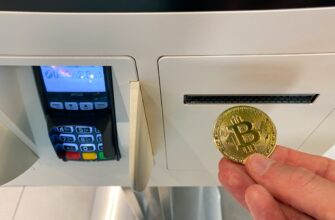- Introduction: Navigating Crypto Airdrop Taxation in Indonesia
- Understanding Crypto Airdrops in Indonesia
- Current Tax Treatment of Crypto in Indonesia
- Are Airdrops Taxable Income in 2025?
- How to Report Airdrop Income in Indonesia (2025 Projection)
- Potential 2025 Regulatory Changes to Monitor
- FAQs: Airdrop Taxation in Indonesia 2025
- 1. Do I pay tax if I hold airdropped tokens without selling?
- 2. How is the value calculated for obscure tokens?
- 3. Are promotional airdrops under Rp 100,000 taxable?
- 4. What if I receive airdrops via foreign platforms?
- 5. Can I deduct airdrop-related expenses?
- Proactive Compliance Tips for 2025
Introduction: Navigating Crypto Airdrop Taxation in Indonesia
As cryptocurrency adoption surges in Indonesia, crypto airdrops have become a popular way for investors to acquire free tokens. But with Indonesia’s tax authority (Direktorat Jenderal Pajak/DJP) tightening crypto regulations, a critical question emerges: Is airdrop income taxable in Indonesia in 2025? Based on current tax frameworks and regulatory trends, this comprehensive guide examines how Indonesian taxpayers should approach airdrop taxation next year, with actionable compliance advice.
Understanding Crypto Airdrops in Indonesia
Crypto airdrops involve free distribution of digital assets to wallet addresses, typically to:
- Promote new blockchain projects
- Reward existing token holders
- Incentivize community engagement
- Distribute governance tokens
Unlike mining or staking, recipients don’t actively “earn” these assets through computational work or locking funds. This distinction becomes crucial when determining tax obligations under Indonesian law.
Current Tax Treatment of Crypto in Indonesia
Indonesia’s DJP classifies cryptocurrencies as taxable commodities under PMK-68/PMK.03/2022, not legal tender. Key principles include:
- Income Tax (PPh): Applies to capital gains from crypto sales
- VAT (PPN): 0.11% levy on crypto purchases (as of 2023)
- Tax Basis: Transactions valued in Indonesian Rupiah (IDR)
Are Airdrops Taxable Income in 2025?
Based on existing regulations and DJP guidance, airdrops likely remain taxable income in 2025 unless policy changes occur. Here’s why:
- Airdrops qualify as “economic benefits” under Article 4(1) of Income Tax Law
- DJP’s 2022 ruling explicitly includes “free crypto acquisitions” as taxable events
- Tokens received are considered assets with measurable market value
Valuation Method: Taxable income equals the token’s IDR market value at the moment of receipt. For example, receiving 100 XYZ tokens worth Rp 50,000 each generates Rp 5,000,000 in reportable income.
How to Report Airdrop Income in Indonesia (2025 Projection)
Follow these steps for compliance:
- Record receipt date and token quantity
- Determine IDR value using exchange rates at acquisition time
- Include amount in Annual Tax Return (SPT Tahunan) under “Other Income”
- Pay Income Tax at progressive rates (5%-35% based on total annual income)
- Retain transaction proofs for 5 years
Note: Selling airdropped tokens later triggers additional capital gains tax on price differences.
Potential 2025 Regulatory Changes to Monitor
While current rules indicate taxability, watch for these developments:
- Draft legislation on crypto asset classification
- Possible tax exemptions for small-value airdrops
- Clarifications on DeFi and NFT airdrops
- Harmonization with global crypto tax standards
Always verify updates via DJP’s official portal before filing.
FAQs: Airdrop Taxation in Indonesia 2025
1. Do I pay tax if I hold airdropped tokens without selling?
Yes. Tax liability arises upon receipt, not sale. The token’s value at distribution time is taxable income.
2. How is the value calculated for obscure tokens?
Use the IDR trading price on reputable Indonesian exchanges (e.g., Indodax, Tokocrypto). If unavailable, document valuation methods.
3. Are promotional airdrops under Rp 100,000 taxable?
No exemption exists specifically for airdrops. Indonesia’s general income tax threshold is Rp 54 million annually, but all income must be reported.
4. What if I receive airdrops via foreign platforms?
Indonesian tax residents must declare global income. Convert values to IDR using Bank Indonesia’s exchange rates on receipt date.
5. Can I deduct airdrop-related expenses?
Only if you qualify as a professional trader. Personal investors generally cannot offset costs against airdrop income.
Proactive Compliance Tips for 2025
To avoid penalties (up to 200% of unpaid tax plus interest):
- Use crypto tax software supporting IDR calculations
- Maintain separate records for airdrops vs. purchased tokens
- Consult certified konsultan pajak for complex cases
- Monitor DJP’s social media for real-time updates
While regulations may evolve, current Indonesian tax law treats airdrops as reportable income. By documenting transactions accurately and staying informed, investors can navigate 2025’s crypto tax landscape confidently.







